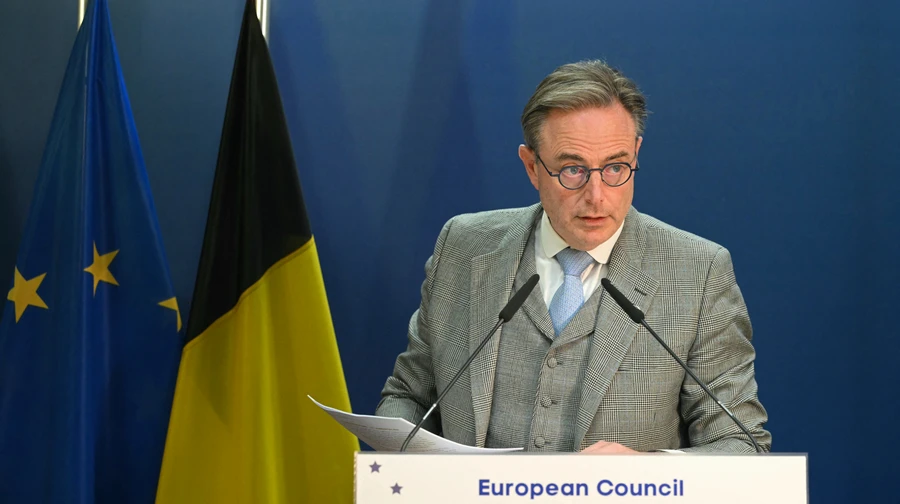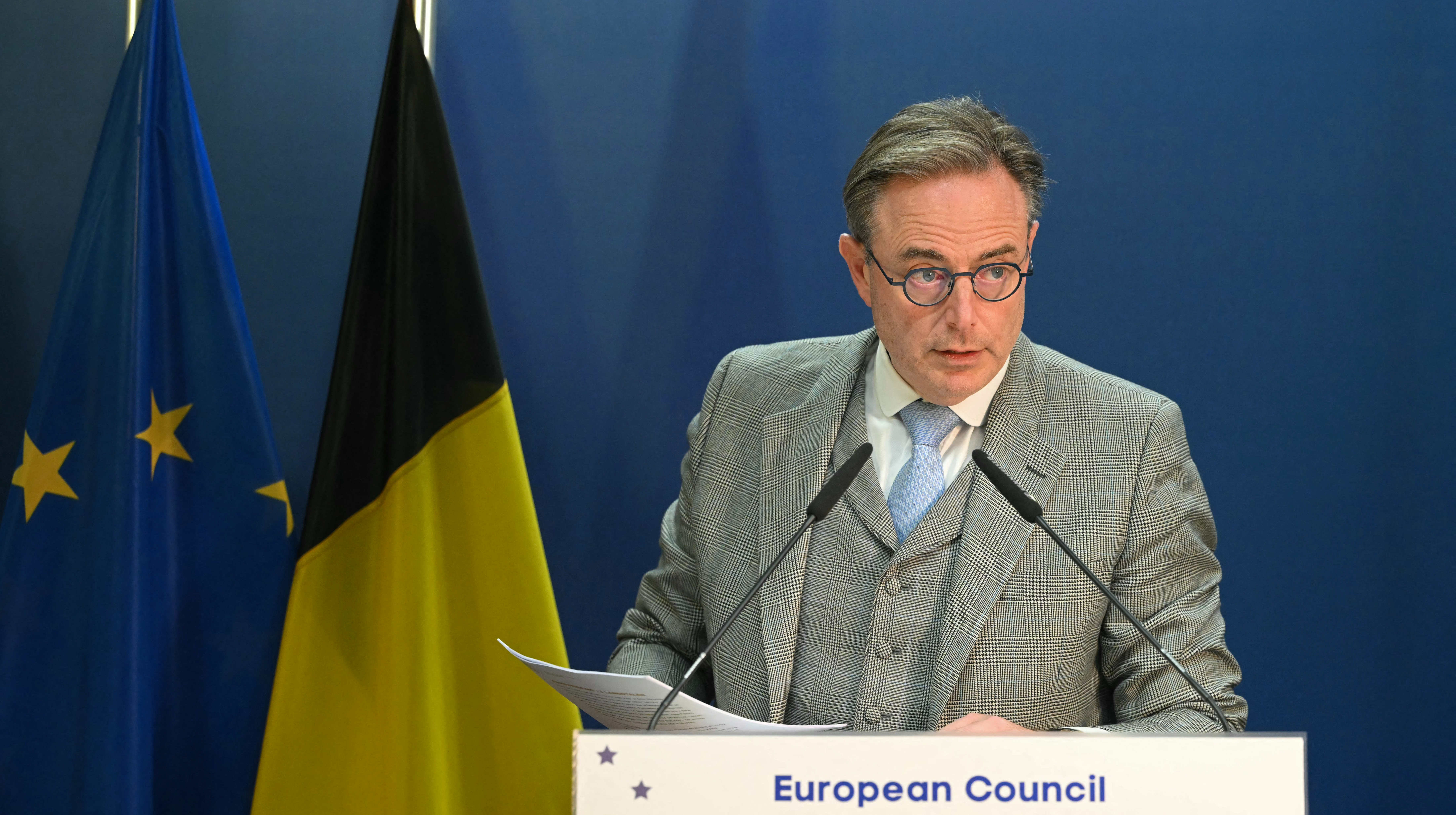“ Belgium has blocked the provision of a “reparation loan” to Ukraine in the amount of 140 billion euros, which was planned to be financed by the profits from frozen Russian assets. EU leaders postponed consideration of the issue until December and dashed the Ukrainian government’s hopes of receiving the funds in early 2026. Source: Financial Times Verbatim: “Leaders of 26 EU countries (Hungary abstained) asked the European Commission “as soon as possible to present options for financial support based on an assessment of Ukraine’s financial needs”, but did not formally support the granting of a loan secured by immobilized Russian assets.” Details: At the summit in Brussels, a proposal to use profits from the frozen assets of the Russian Federation (about 190 billion euros) to finance a large-scale loan to Ukraine met with resistance from Belgium. With the vast majority of these assets held in the central depository Euroclear located in Brussels, Belgium fears becoming a prime target for legal action and financial countermeasures from Russia. “We have made a key political decision to provide full financial support to Ukraine to cover its needs in 2026 and 2027,” European Council President Antonio Kosta said, noting the presence of “technical issues” that still need to be resolved. Belgian Prime Minister Bart de Wever said his country needed absolute clarity on the legal basis of such a move and the potential risks to the euro, as well as assurances from other countries that the money could be returned if necessary. “The legal basis is not a luxury,” he stressed. French President Emmanuel Macron noted that the loan “remains the main mechanism” of supporting Ukraine, despite the temporary failure. German Chancellor Friedrich Merz, while supporting the loan, admitted that Belgium had raised “some very serious issues” that needed to be resolved. The lack of a decision jeopardizes plans to finance Ukraine’s defense and budgetary needs. President Volodymyr Zelenskyi, who was present at the summit, emphasized the critical importance of receiving funding at the beginning of 2026. “We need the money in 2026, and it’s better to have it at the very beginning of the year, but I don’t know if that’s possible,” he said. EU leaders now plan to return to the issue at their next summit on December 18. For reference: The idea of a “reparation loan” is not to confiscate the frozen assets of the Russian Federation directly, which is a legally complex process, but to use them as collateral. It is assumed that the future earnings generated by these assets (for example, interest) will be directed to the repayment of the loan already granted to Ukraine. This would allow Kyiv to receive a significant amount of funds for urgent needs, without waiting for the end of the war and full reparations from Russia. Background: Previously, the President of Ukraine Volodymyr Zelensky announced that the European Union undertook to provide financial assistance to Ukraine up to and including 2027 and confirmed the political will to use frozen Russian assets for the benefit of Ukraine. As “European Truth” reported, on October 23, EU leaders approved conclusions regarding Ukraine, which confirm the commitment of the European Union to ensuring the financial and military needs of Ukraine in 2026-27: 26 out of 27 EU states voted for the document. Hungary has traditionally not supported such a document.”, — write: www.pravda.com.ua
 Bart de Wever. Photo: Getty Images
Bart de Wever. Photo: Getty Images Source: Financial Times
Literally: “Leaders of 26 EU countries (Hungary abstained) asked the European Commission to “as soon as possible present options for financial support based on an assessment of Ukraine’s financial needs”, but did not formally support the granting of a loan secured by immobilized Russian assets.
Advertising:
Details: At the summit in Brussels, the proposal to use profits from the frozen assets of the Russian Federation (about 190 billion euros) to finance a large-scale loan to Ukraine met with resistance from Belgium. With the vast majority of these assets held in the central depository Euroclear located in Brussels, Belgium fears becoming a prime target for legal action and financial countermeasures from Russia.
“We have made a key political decision to provide full financial support to Ukraine to cover its needs in 2026 and 2027,” European Council President Antonio Kosta said, noting the presence of “technical issues” that still need to be resolved.
Belgian Prime Minister Bart de Wever said his country needed absolute clarity on the legal basis of such a move and the potential risks to the euro, as well as assurances from other countries that the money could be returned if necessary.
“The legal basis is not a luxury,” he emphasized.
French President Emmanuel Macron noted that the loan “remains the main mechanism” of supporting Ukraine, despite the temporary failure.
German Chancellor Friedrich Merz, while supporting the loan, admitted that Belgium had raised “some very serious issues” that needed to be resolved.
The lack of a decision jeopardizes plans to finance Ukraine’s defense and budgetary needs. President Volodymyr Zelenskyi, who was present at the summit, emphasized the critical importance of receiving funding at the beginning of 2026.
“We need the money in 2026, and it’s better to have it at the very beginning of the year, but I don’t know if that’s possible,” he said.
EU leaders now plan to return to the issue at their next summit on December 18.
For reference: The idea of a “reparation loan” is not to confiscate the frozen assets of the Russian Federation directly, which is a legally complex process, but to use them as collateral. It is assumed that the future earnings generated by these assets (for example, interest) will be directed to the repayment of the loan already granted to Ukraine. This would allow Kyiv to receive a significant amount of funds for urgent needs, without waiting for the end of the war and full reparations from Russia.
Prehistory:
- Former President of Ukraine Volodymyr Zelenskyi reportedthat the European Union undertook to provide financial assistance to Ukraine up to and including 2027 and confirmed the political will to use frozen Russian assets for the benefit of Ukraine.
- As “Evropeyska Pravda” reported, on October 23, EU leaders approved conclusions regarding Ukraine, which confirm the commitment of the European Union to ensuring the financial and military needs of Ukraine in 2026-27: 26 out of 27 EU states voted for the document. Hungary has traditionally not supported such a document.
